A Letter To Etta
Observing grief after a month without my infant daughter
Etta –
This week marks one month since your death, my sweet girl. As we speak, you are becoming nutrient-rich soil. Soon, you will fuel plants, fruits, and ecosystems of birds and bees across the country—an everlasting return to Earth.
The impossibility of your loss feels no easier to bear today than it did four weeks ago. It's worse, now further removed from clasping your sweet hand, holding you in my arms, napping on the couch while you nap on my chest, rocking you to sleep in the midnight hours, guiding my thumb over the delicate arch of your nose.
I've decided to dedicate all future letters about grief to you. This is how I speak with you now. This is how I keep you alive. Talking to you is as healing as it is painful. And frankly, I have no interest in speaking to or with anybody else. I also promised I would always be honest with you.
I know someday, grief will hold me close, like a hug. But right now, it is merciless. I thought I was well-versed in grief. Even before your absence, I was no stranger to the bitter lessons of loss. I felt intimate with the bridge that connects the worlds of the dead and the living. I embraced the agony of sorrow and began understanding the gifts it eventually imparts to the living. I'd even written about grief before you were born, with great length and intention. Words that took me months to write.
But after you passed, I realized I’d never really known grief. Not the fracturing, debilitating kind I know now. Grief is no longer a bridge between two worlds; life and death have become one. Universes have collapsed, and me and your mama stand at its center. If there is still a bridge, we’ve become it.
Grief is now a chasm, a void into which everything I've ever known, loved, or touched has plundered. It is not without hope, but finding my way out means peering from the depths of a canyon to a tiny ledge miles ahead in the clouds. It is a daunting task requiring focus, patience, and the daily motivation to keep climbing—for years. Though I wish not to rush this process, I pray for the day the canyon's edge is again within reach.
For now, your mom and I seek out the spaces where we feel your presence most acutely. The ocean, the desert, the forest. It's as if you dwell in Earth's sacred, untouched patches. For a month, we've visited you here; a lifetime remains. Wherever we go, wherever we plant our feet, we are beside you. We spend each day in silence and stillness—as best to hear you, baby girl. We light a candle at your mobile altar. We sit where you reside and speak with you.
We just got home from a week in Joshua Tree, a time of disconnect in the winter desert. Though we felt drawn to you, we were unaware when we booked the trip how symbolic these hallowed lands would be of our grief. It was as if we were looking at a painting of the state of our hearts—panoramic skies, the air cool and crisp. In the mornings, I woke up with the sun to write to you. As cantaloupe clouds colored the dusty canyon, I meditated in prose, sought your companionship.
The winds were strong. They howled as they crashed into the windows and walls of our temporary home. The sounds were similar to the howl your mother makes when crying. A solemn cooing, as if to exasperate deep despair without a direction—or perhaps pointed only at you. My eyes searched for her, again and again, only to realize it was not only your mother crying; she was in harmony with the wind.
That place cried with us for a week. It matched our grief. Cold and windy, with moments of sun and intense warmth dredged throughout the day. A dry and barren desert, life alive deep in the crevices of the scattered shrubs and cacti. They were depleted, like us. The waters left long ago, cries of the Earth. But they'd found a way to sustain themselves in the drought and learned, like us, just how much vitality is stored in their marrow. Some days, the winds were so vigorous, gusts so blustery, that no feet could stand firmly. Our knees buckled beneath the forces of grief as chairs blew over and the birds swayed in the skies. Other days were tranquil, beckoning warm contemplation.
We were isolated, tucked away from society and obligation. But the occasional car reminded us that we were not alone. There were others up in the peaks of the desert hills, also secluding themselves from the stressors of a devastating world. It was quiet—sometimes too quiet—but healing. It reminded us that stillness, even in the face of despair, is essential to hearing the heart's cries. Silence is a saline for wounds.
And so we continue our rooted meditation. We’re lost, uncertain of what comes next, and we’re trying to surrender our need to know. We take it one day at a time, hour at a time, minute at a time. For now, we try to embrace the warmth of a patient and gracious community that has surrounded us with love.
For years, we poured ourselves into the community—the stories, prosperity and well-being of our people. We sacrificed income, resources, and even security for others. But you were ours alone, our love's manifesto. We were selfish about our time with you. We reveled in your every day. We were conscientious about not taking a moment with you for granted, triumphant or mundane. We loved you more than we've ever dared to love ourselves.
You should see how they speak your name now, my child—another of many expressions of our love for you. The way they comment on your big bright eyes. We haven't mustered the courage to read all their affirming words nor the capacity to broach a thank you. But in time, we will ensure our community knows how grateful we are to be held. We hope you feel it, too.
Your home feels empty without you. But it is overflowing with the sights and smells of flora. Each day, another bouquet arrives at our doorstep. Friends and family drop off food and care packages. We've received hundreds of messages in the wake of our announcement, including footage of altars and commemorations of your name, Etta Mae, globally—Los Angeles, Chicago, Minneapolis, New York, Sweden, Belgium, India, Japan, Ethiopia, Italy. You are loved, baby girl. And not a minute goes by that you're not central to our every thought and effort. Your legacy grows beyond what I thought possible.
In your absence, I've learned a few new things about grief. I've learned that grief is as unforgiving as it is cleansing. It is as unstable as it is constant. It is as isolating as it is centering.
I've learned that grief has seasons, and we have yet to leave winter. We know that a burgeoning spring is somewhere distant on the horizon. But speaking to us about gratitude right now is like waking somebody up during open heart surgery and telling them their scars will be pretty. It might well be true, and someday even healing, but our hearts have work yet to survive.
Grief of this consequence is like a flood; it is leveling. It washes away everything. What remains are sodden memories and ghostly recollections. I trust that, in time, these recollections might resemble hope, even joy. But for now, we bathe ourselves daily in these murky, violent waters. We'd rather navigate our way through heartache than bury it. It keeps you near.
This is a lifetime wound. I've known that since we were first confronted with the reality of your loss. It is strange to know that one is entering a lifetime of sorrow. That we will greet you only in the gnawing of your absence.
I want to heal your mother's pain; she breaks for you daily. And I'm trying, but I've hardly begun to scratch the surface of my own. And given your mother brought you into creation—carried you for almost a year, prepared for you for a lifetime, and is still healing postpartum—her grief is more profound yet. I fear hers is a sorrow that, despite my anguish, I cannot begin to comprehend.
Your mother and I keep saying to each other, "I don't know what to do." We feel uncertain about every step, and we don't know how to pass the time. We no longer recognize time as a friend or even an enemy. It has stopped mattering altogether. It is as if we are floating in space, disconnected from all feelings or orientation.
We are determined to conquer this grief together. By conquer, I mean soothe its razor-sharp edges and transform it into something capable of carrying. There is no erasing this grief, only discovering new ways to hold it. Such mastery looks different for us both. Your mother hopes to vanquish her mind; I hope to commune with mine.
On our first day in Joshua Tree, your mama said, "I have a fun idea." I looked at her curiously. She continued, "Last time I was here, I did ATVs. I think it'd be fun."
"Alright, let's do it," I responded. I rather enjoy adventurous thrills, so I was excited by the opportunity.
The following day, after breakfast, we drove 15 miles to her preferred ATV location. Your mama had visited the same place with some running buddies on a trip a couple of years prior.
Ten minutes into a sand and tire course resembling Mario Kart, we both had accidents. Your mama instantly targeted the highest peak as if to mount her grief and, in an attempt to turn too quickly, flipped over the ATV and onto her back. When I looked up at the hills, still trying to find my rhythm at the course's training hills, I saw your mother laid out, face and body downward in the sand. Finally, she got up. She told me later that she could feel my concern stretching across the canyon dune.
I tried to reach her but couldn't yet sort out the manual gears to get up the hill. "I'm okay," she said, beside me again at the hill's base. "But my back hurts a lot." That should have marked the end of our excursion, but we decided to keep going—to "take it easy." Now, I was curious. The competitor in me got confident, and I'd finally gotten the hang of the manual drive. I went up to the top of the hill once and made it down with no problem. The rush of barrelling down a dune was a healing of its own. So I went again—one last time, I thought, before leaving for a pillowy bed.
I went down the same hill as your mother and took a bad angle on a steep turn. Hoping to minimize the inevitable pain, I hopped off the ATV as it proceeded to tumble off the mound and wedge deep into sand several yards down the hill. I also landed on my back, knocking the air out of my chest. Unable to breathe, I was sure at first that I had broken a rib or potentially punctured a lung. But in time, after finding a tolerable position, I realized I could walk (and breathe) and slowly returned to my ATV and your mama.
Both injured, we finally called it a day. We couldn't sort out whether to laugh or cry. "What the hell is wrong with us?" your mom said on the drive back home, audibly aching.
"It was fun, babe," I responded. We laughed. "Don't stress about it. I actually thought it was a lot of fun."
Neither of us could move, so we sat stoic in the car for the 20 minutes home. One day into our five-day retreat in the desert, we were immobilized. Though we both turned out to be okay, neither of us felt like it. Our backs had become yet another symbol of our grief.
"What are we doing, Matthew?" she wailed again, merging pain and levity. "I don't know, babe. Our best," I said quietly. Suddenly, the acuteness of your loss washed over us again, tears coming down our faces. The enormity of your absence saddened us, one so big we felt we had to traverse it with ATVs. We were floundering, trying anything to bring us a few seconds of joy, desperate for any feeling but despair.
Your mother looked at me again, now with heaviness in her eyes. "What are we doing?" she repeated. Her inquiry had turned existential.
Hand reaching for her lap, I responded with more gravity, "We're doing our best."
We are doing our best, Etta Mae. Our best to process this. Our best to meet you wherever you are. Our best not to fall deep into despair. Our best to maintain a practice of joy and purpose, to believe happiness will again befriend us. Our best to heal. Our best to live a life worthy of you. Even when we feel insignificant or helplessly imperfect, our bodies battered and aching, we are doing our best.
We love you so much, sweet girl. Every tomorrow is for you.
Papa



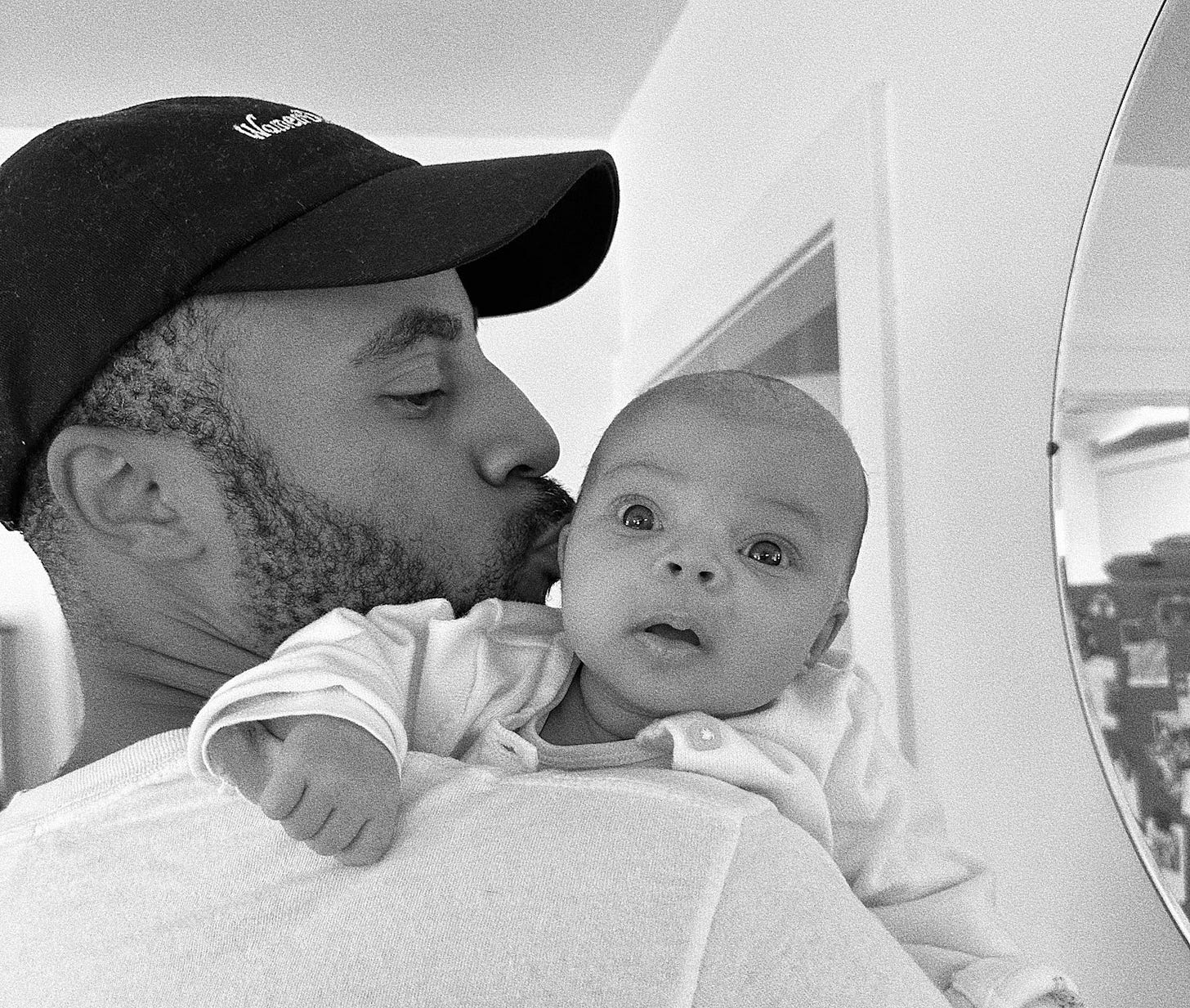

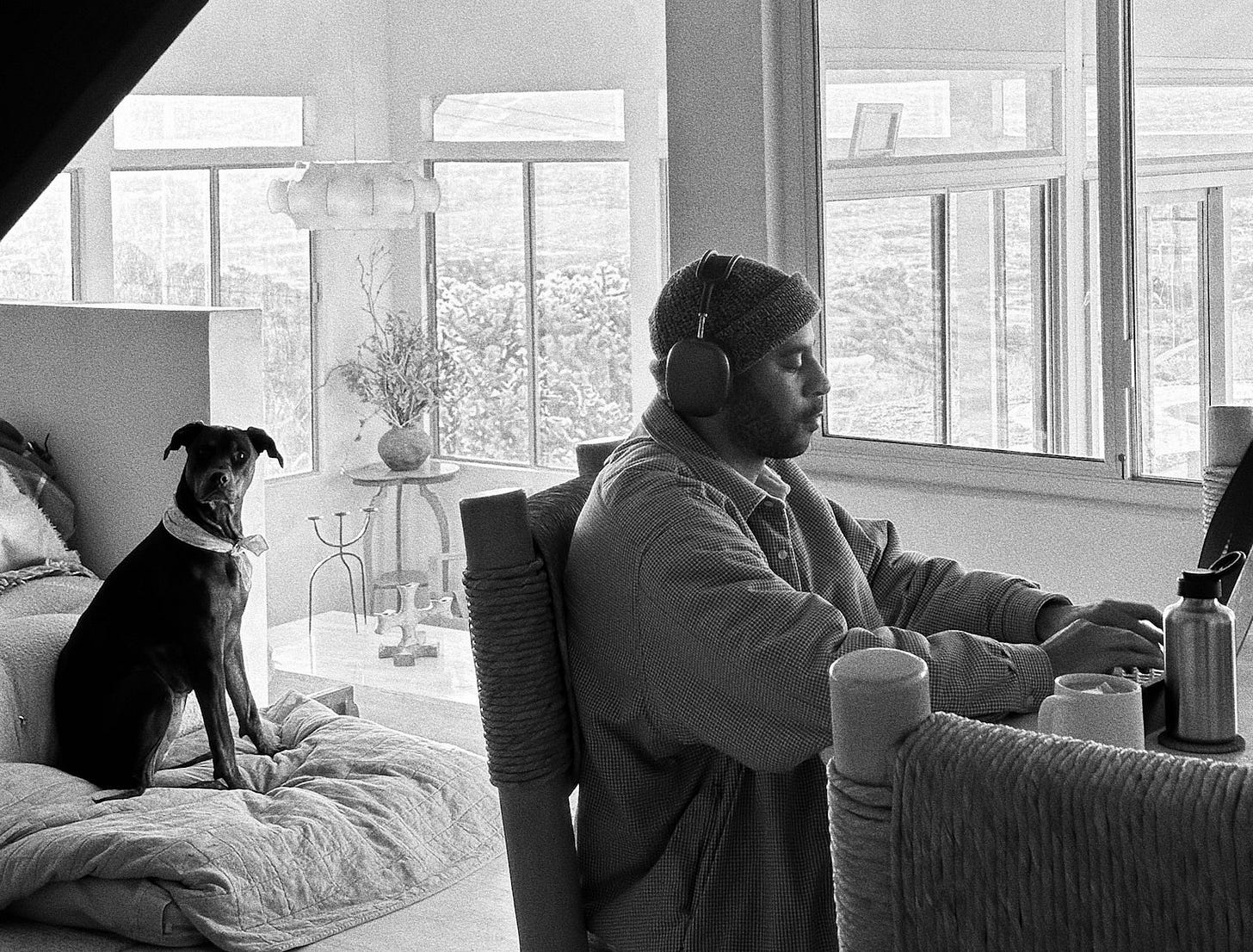
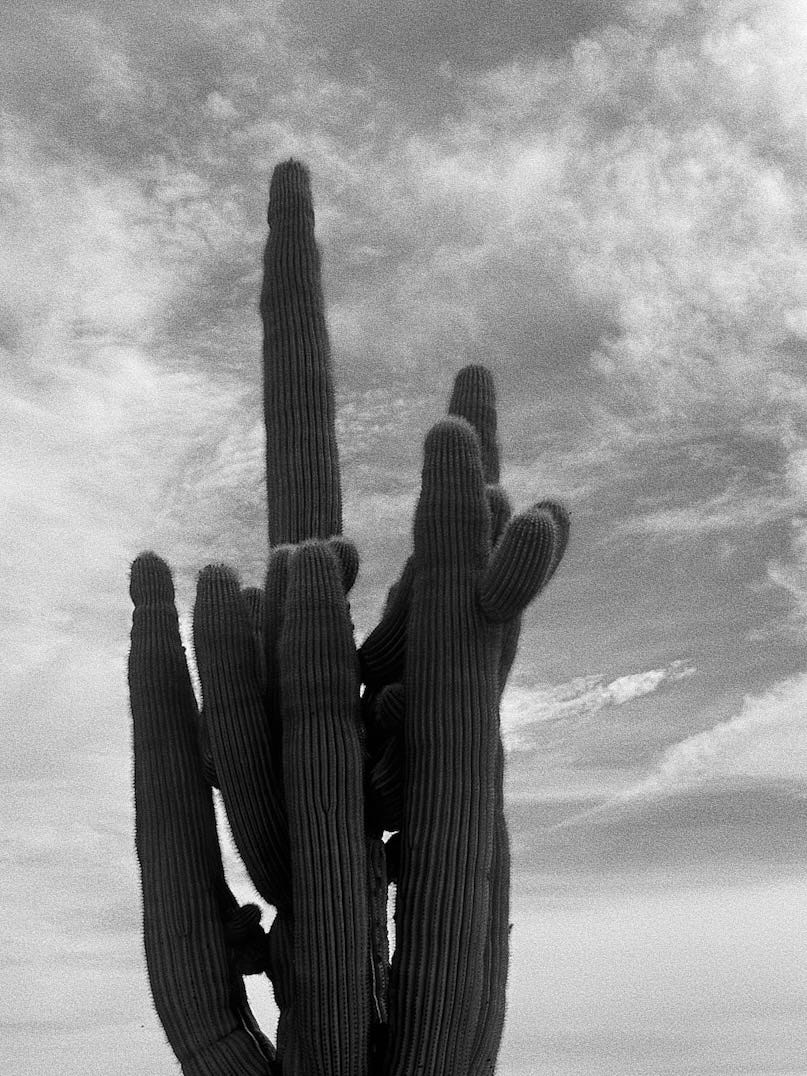



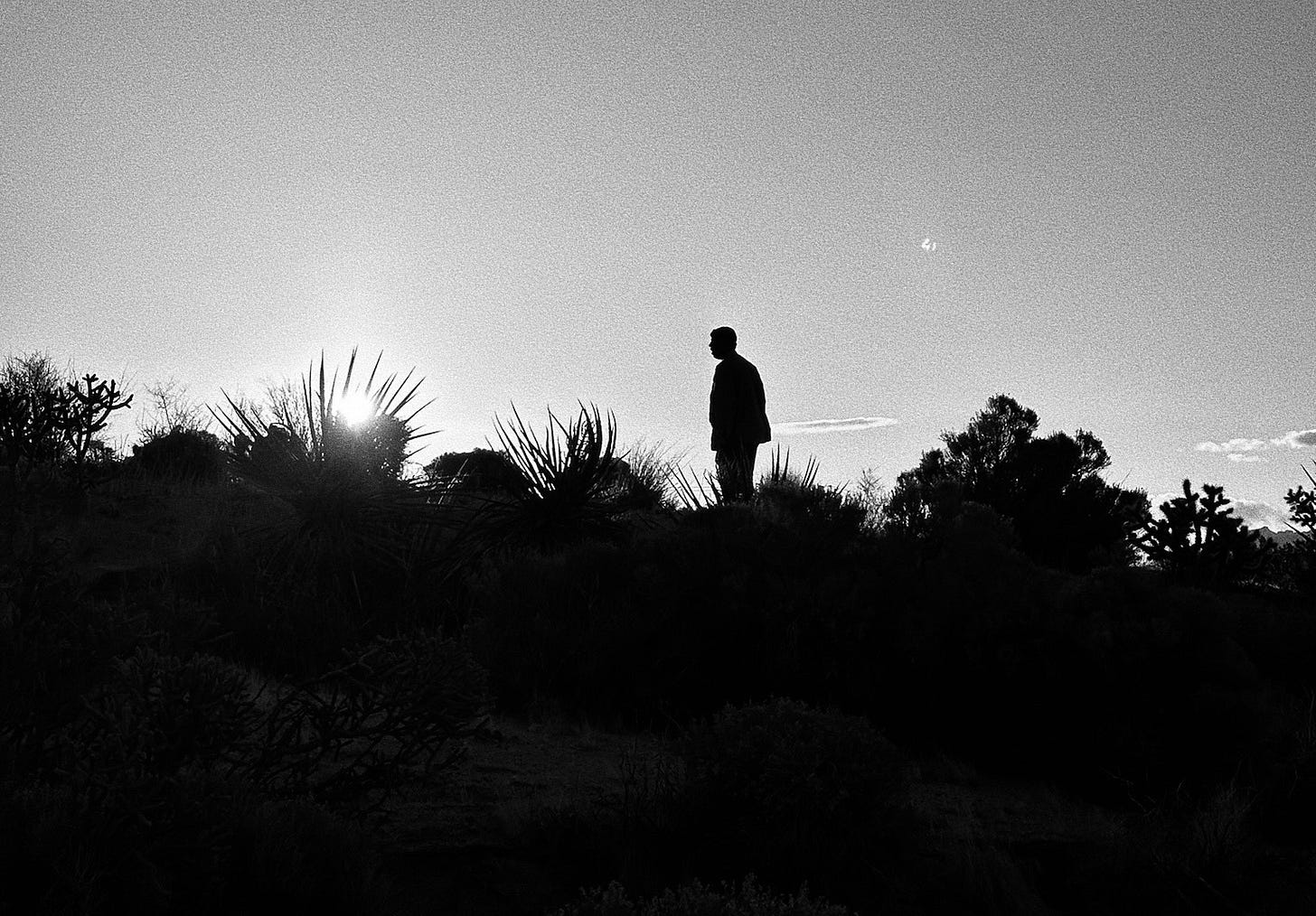
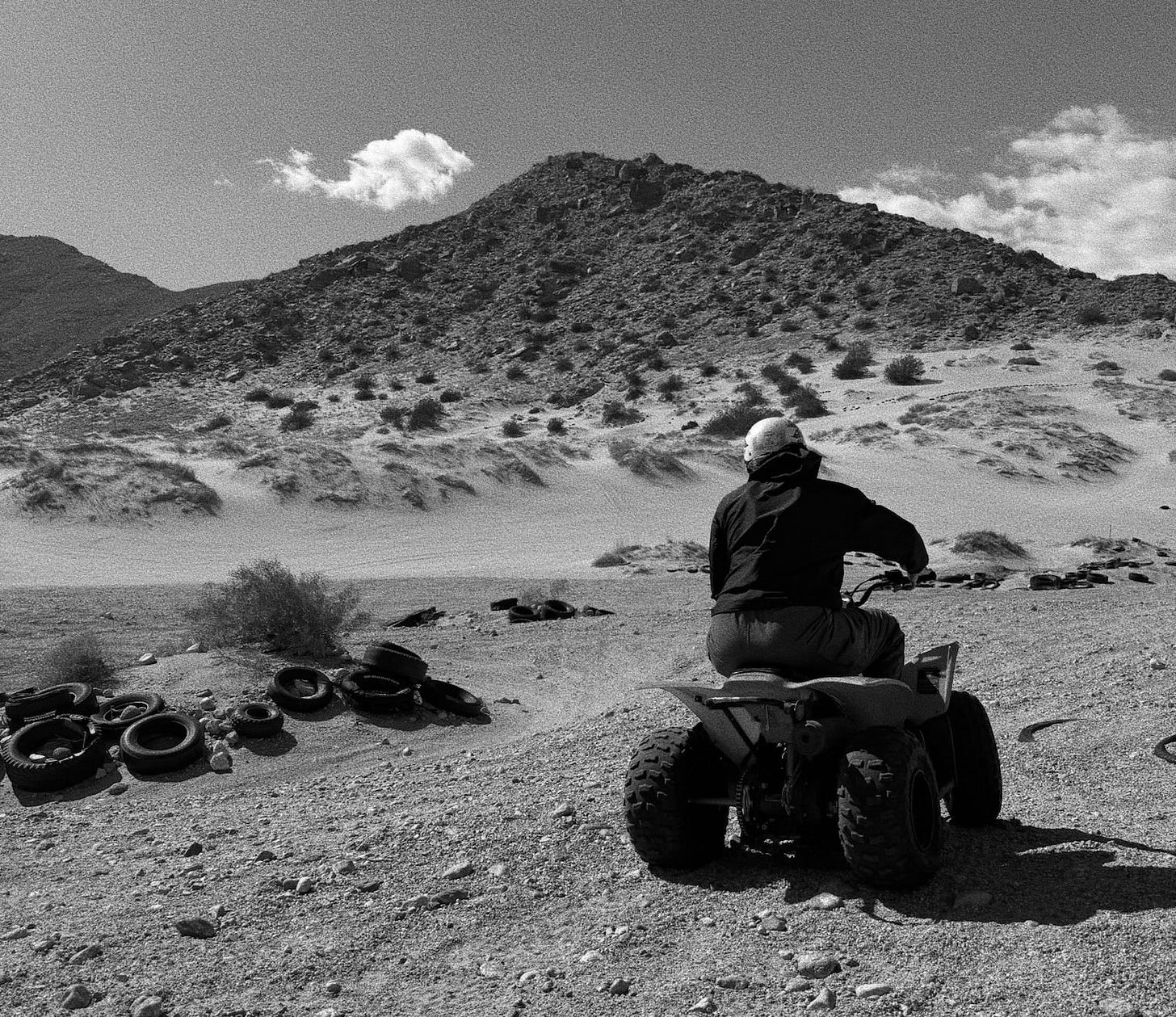


My sweet beautiful Son, thank you for this heart stopping piece, somehow putting into perfect words every emotion and thought I cannot. I can never ever know the depth of your mutual grief, but I can sit close beside you through it and remind you what remarkable humans and parents you are in the face of this new chapter you never asked to live.
Now I ”pray for the day the canyon's edge is again within reach.” One hour at a time, and one day “happiness will again befriend” you.
Momma
Beautiful Piece, Matt. Thanks for sharing your heart. How strange to think other people's lives just go on as normal while you and Courtney's world has so changed. Watching the deep grief of others I've been awed to watch some sense of normalcy return and even real joy. May it be so. Etta will be in our hearts always. You and Courtney are not forgotten. We are with you continually in prayer. Praying for you... Peace and Perseverance.